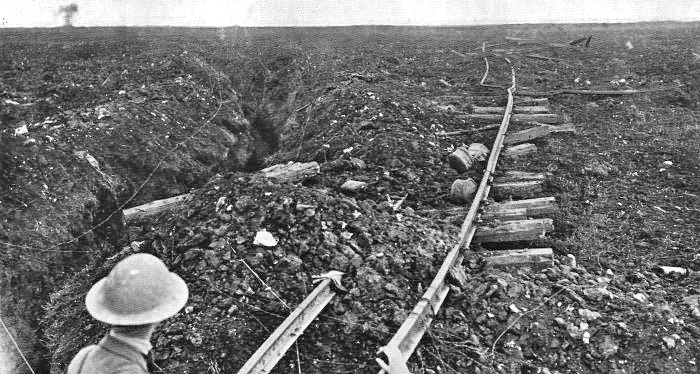One of the bloodiest battles in World War I took place in the small French village of Pozieres. Records show that almost as many Australians were killed in six weeks of Pozieres as in eight months of fighting at Gallipoli. C. E. W. Bean, a leading well known war correspondent, noted that the fields were “more densely sown with Australian sacrifice than any other spot on earth.”
However, the battle was significant for another reason as well. Barry Gracey from the Pozieres Remembrance Association recognizes that Pozieres was one of the few clear victories on the entrenched and bloody western front. He said,
“Even though we lost such a tremendous amount of men, we managed to take one square kilometer of France. In terms of what was occurring in those days, that was magnificent because yards were being measured as great advances.”
Gaining one square kilometer was crucial, but it cost the country 7,000 men. Today, there are still 4,000 of those men who are missing with no marked grave.
History professor Trevor Wilson explains that the huge amount of missing men is indicative of the harsh realities about the war on the western front. The fighting was so brutal that there was not much left behind to find once it ended. Wilson described, “This is the first industrial war, I mean there had been examples of industrial powers fighting before but they were fighting non-industrial powers. The north versus the south in the American Civil War, the British against the Boers, but not one industrial power against another.” World War I was a new and different experience, but certainly not new in a good way.
And yet there is no memorial dedicated to the men who gave their lives at the battle of Pozieres. Mr. Gracey gets emotional when he thinks about these men and how they simply deserve more than the country they sacrificed for has given them. He strongly believes that when a solider puts on a uniform to prioritize Australia over their own life, they deserve to be recognized for that bravery. “These men have got nothing, they would have been better off dying at Gallipoli because at least Australia would have commemorated them… it does upset me, I just think these men deserve better.”
The Pozieres Remembrance Association and the mayor of Pozieres have been moved to take action. Gracey has identified four acres of farmland where many of the 4,000 missing men likely rest. The land is currently up for sale. The latest plan is to buy that property, plant a rose garden and establish a memorial wall inscribed with the names of those who died. Gracey is even willing to put his own home on the market to provide money for the purchase if it could not be raised through public appeals.
Gracey believes that if someone has a relative who died at Pozieres, then they should not have to go stand at Villers Bretonneux 40 kilometers away to pay their respects. Instead, those family members should be able to leave a cross or poppy at the actual spot where their man died.
This year marks the 100th anniversary of the battle of Pozieres; official ceremonies will be held. Mr. Gracey is disgruntled by the fact that he feels successive Australian governments have paid so little attention to Pozieres. He said, “For 99 years they’ve ignored it. They’ll go to Fromelle, which was four days before Pozieres, and then not stay. You would think the politicians would wake up to the fact that there is a free trip to France in it!”
Simply put, governments need to alter their attitudes toward Pozieres. Brigadier Tim Hanna, the head of RSL in Adelaide, he agrees that it is time to see a change in the government’s attitude toward Pozieres. He expressed his sentiments by stating, “It would be wonderful if people of Australia and the Government gave Pozieres the recognition it is due and assisted with some financial contribution to the project.”
The battles of Fromelle and Verdun are also being marked this year; is it possible that another memorial for World War I is just too much? Professor Wilson is considering the answer to this question as both a historian and a relative (his father fought in 1917 at Passchendaele).
He is on the fence about this as he contemplates what exactly it is that we are remembering. There is the success of Pozieres, but there is also the horrific component to the whole experience. Overall, there is so much to recall from World War I, but what people want to remember is an entirely different question.
Brigadier Hanna recognizes the point Professor Wilson puts forth. It is possible to over-memorialize the battles that we have been in over the last century. However, it is time for Pozieres to finally be recognized, after a century of being undervalued. The past cannot be changed, but it is possible to rectify the future.
According to Hanna, the bottom line is that Pozieres is a very significant part of Australia’s military history. There were many Australians, including South Australians, that died there. As a result, there are clear grounds to commemorate and make note of the battle more than it has been historically.
